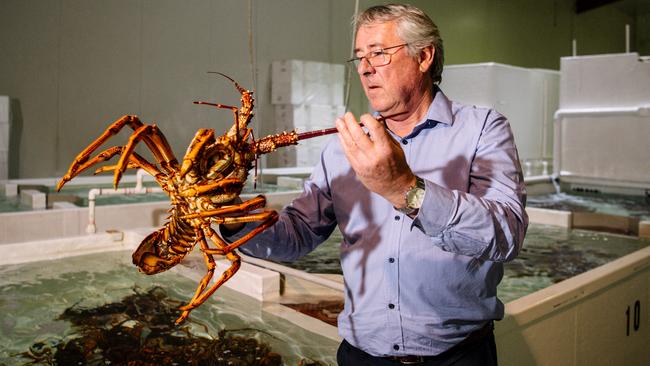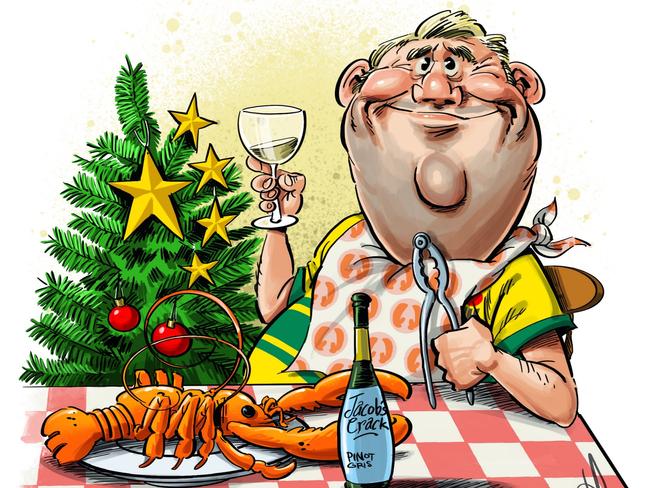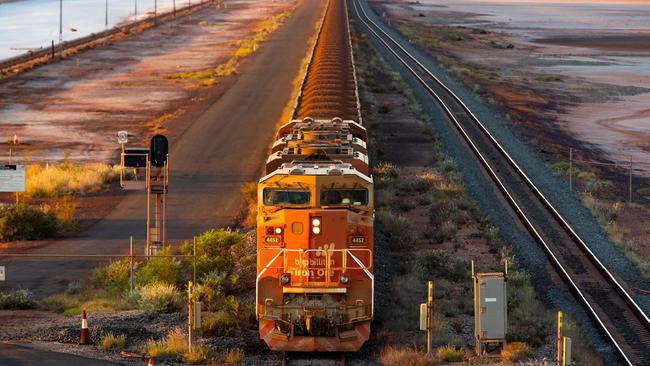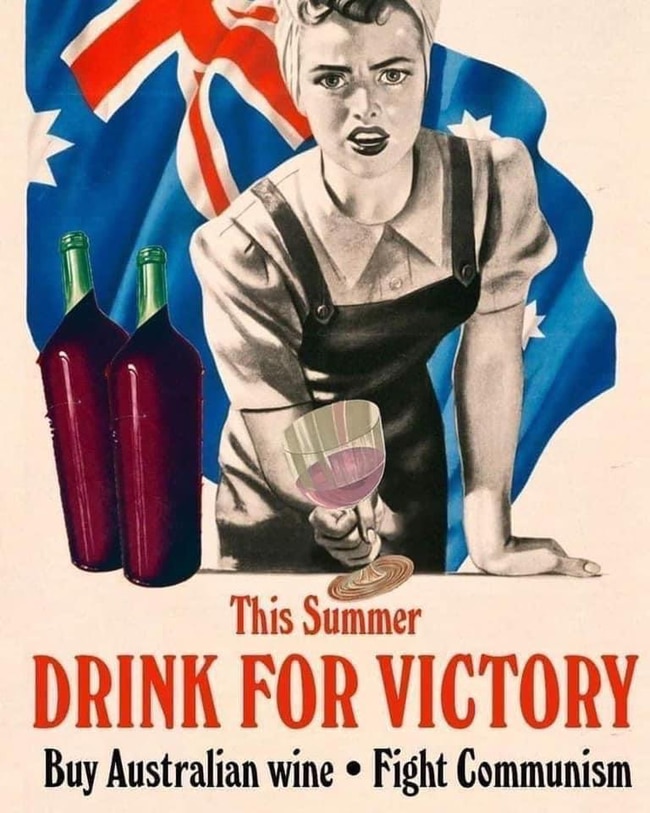China trade war will hurt, but Australia is already winning
The growing trade war with China will hurt - but we are already winning it in key ways, and not just with cheaper lobsters, writes James Morrow.
Opinion
Don't miss out on the headlines from Opinion. Followed categories will be added to My News.
This year will forever be remembered as the year Australians began by fighting over toilet paper and ended by fighting over lobsters. Thanks to Beijing slapping an informal ban on Australian lobster producers, there’s now suddenly a glut of crustaceans on the market that would have gone to the dining tables of Chinese princelings — but which will now grace Australian Christmas buffets instead.
Indeed there are so many of the things available that Coles and Woolies have both slapped four per customer limits on the now heavily discounted $20 lobbies to make sure everyone gets a go.
Who says communists can’t put food on the table?

Oh, right, that only applies in their own countries.
Yes, of course this is just a temporary glut, and the market will eventually rebalance (though still, likely, in favour of the consumer).
But in the meantime, lobster populations are recovering and lobsters themselves are cheaper for Australians — you know, the very people all that now-suspended free trade with China was supposed to benefit in the first place.
Which brings up the bigger question: If China is determined to turn its back on Australia in this ongoing trade war, how can Australia turn things around for the good?
To put it another way, instead of turning lemons into lemonade, how do we turn lobsters into lobster mornay? There are some indications it is already happening.

Although not yet enough to make up for China’s massive demand, exporters are already seeking other markets for their products.
At the same time, the perverse flow-on effects of China’s attempts to punish Australians for wanting to maintain their economic and political freedoms are becoming clearer. And they’re not all bad.
This week a Deloitte Access Economics report noted that China’s trade war has caused the iron ore price to be bid up to historic highs on the world market, giving a huge boost to our miners, investors, and the economy.
High prices mean not just greater revenue for the Australian government, but higher costs for China, which desperately needs our raw materials to keep its own economy ticking over via their massive infrastructure program.
According to the analysis, by 2023-24, higher iron ore prices may leave our COVID-driven budget deficits $15 billion better off.

In other words, the costs of a pandemic that began with China’s mismanaged response to the virus are being at least partially covered by China’s mismanaged attempts to bully Australia.
And that is before contemplating the effects on China itself. It’s easy to think of that nation as a monolith, just as we did the Soviet Union during the Cold War, but it is subject to the same pressures as any place else.
No, China is not a democracy, nor is it a good place to go against the government, as the Chinese Communist Party’s millions of victims demonstrate.
But the country’s rising middle classes love Australian wine and food and other products for their quality, perceived status, and safety. Making them more expensive, or taking them off the table entirely is not popular, and could further shake confidence in Xi Jinping’s leadership.
Likewise in Australia, industries that had thought the Chinese money tap would never turn off will surely be having second thoughts — which again, will be all to the good.
Take higher education which, to be frank, probably never should have started thinking of itself as “industry” in the first place.
It’s no secret that our university sector has become terrifyingly dominant on selling diplomas to overseas students, most of them from China.
This has led to well-documented cases of censorship and restrictions on academic freedom to pressures on professors to pass full fee paying students whose lack of English means their diplomas aren’t worth the paper they are printed on.
Beyond industry by industry effects — and no doubt there is pain out there — China’s petulance has done what our own politicians have been unable to do for decades: unite us around a common cause, for Australia.
Consider the patriotic memes that have been circulating online.

Think of the World War II-style poster making the rounds urging us to “this summer, drink for victory — buy Australian wine, fight communism”, or even this newspaper’s Drink Delivered Australian wines offer.
It’s all part of a bigger push to buy Australian. One frequent supermarket shopper reports seeing an increasing number of consumers checking “made in” labels as carefully as they used to check the nutrition ones.
For some time the quiet criticism of Australia has been that the 30 years of boom times which came to a halt with the pandemic have made us soft, and that once the music stopped there would be nothing to hold us together.
But with the exception of the blame Australia first left, as a country we have rarely felt so united.
The same thing is happening across the world, which is waking up to the challenge of China’s schoolyard bullying, and increasingly seems prepared to stand against it.
Across the world, survey after survey shows that people increasingly distrust China’s government, which makes it that much harder for them to fulfil their mission of being the world’s dominant superpower by mid-century.
In October a Pew poll found that negative opinions about China soared to record highs in nine of 14 countries, including Australia.
Yet post-1945, the US was the beacon to the non-Soviet world, with not just its governance but its “soft power” from blue jeans to the blues admired around the world.
For all the ancient glories of Chinese culture, under its current dreary hybrid commie-capitalist regime all Beijing has to offer is the promise of ticky-tacky consumerism in exchange for debt traps and loss of freedom and sovereignty.
No thanks.
I’d rather have the cheap lobster, washed down with a tasty local white.



